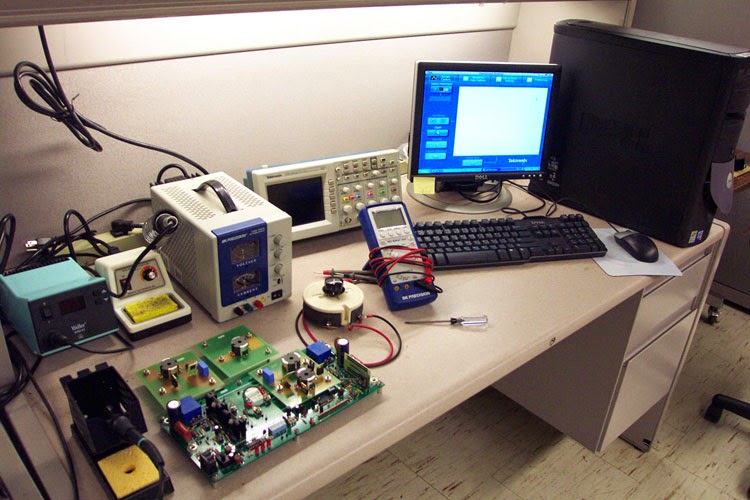 |
| Electronics Lab |
Every electronic hobbyist have a dream of setting up a lab at home. This will certainly help to learn, explore and of course have fun with Electronics. But most people don’t know how to set up a lab. There are lot of questions to answer – How much space I need ? What are the tools I should buy ? How much it will cost ? To help answering these questions I have gone through several forums taking suggestions from pros i have prepared this guide to setup a Electronics lab at home. I hope this will be helpful for all budding Electronic Engineers and Hobbyist.
WORKSPACE:
This is the first thing you need to set up for your lab. The workspace should consist a large wooden work bench, desk or table that should have ample amount of space for you to work with. While the size of the bench is subjective. Choose a size that will hold the components and tools while you are working. Ensure that work area is well lit and comfortable to work with even for a long time. Your workspace should be accessible to household electrical power socket.
Also install a Desktop or Laptop computer in your workspace which will be really helpful in referring to datasheets of components or IC’s. Also it will come handy when you are working with Microcontrollers to program and test them.
POWER SUPPLIES:
Power supplies hold the next priority in electronics Lab. When coming to power supplies you have lot of options to consider but it all depends on how much you can invest and what range of supplies you normally work with. Bench power supply is the best investment you could buy for your lab. You can find a decent one for $60 USD. You should definitely buy this if your budget allows.
In case you are working with low budget its best to buy some handy DC power supply adapters of different voltage output. Get DC adapters in generic voltage ranges such as 12V, 9V, 6V, 5V and 3.3V.
IMPORTANT TOOLS/ EQUIPMENTS TO BUY:
These are some of the important tools and equipment that you should consider buying. The list is sorted to show the most important tool least important one. This list is subjective and the priority can vary based on project you likely to work with. This is intend to give some idea about the tools.
- Multimeter
- Solder Iron/ Soldering station
- Solder
- Flux
- Helping Hands
- Protoboards
- Wire Strippers
- Needle Nose Pliers
- Tweezers
- Screwdrivers
- Knife
- Drill
- Connecting Wires
- Breadboard
- Gator Clips
- Heatshrinks
- Heat gun
Many would have noticed i missed “Oscilloscope” in the above list. A decent Oscilloscope will cost around $200 and am not sure that how many of you would like to spend that much for your lab. Oscilloscope is extremely useful equipment but not the first thing you need to buy. Here is a detailed article about must have tools and equipment for your lab, do check it out.
COMPONENTS TO BUY:
Components totally depend on your interest and expertise level. Here is a list of generic components that will be quite handy to stock up in your lab.
- Resistors ( 100,330,470,1k,10k,100k,1M)
- Capacitors ( 0.1uF, 22pF, 100uF, 1000uF)
- NPN & NPN Transistors (2N222,2N3906)
- Diodes (1N4001,1N4148)
- Voltage Regulators (7805,7812)
- IC’s ( 555,4017)
- LED (red, Blue, white)
- Male and Female Header
- Battery
- Push Buttons
The above list is quite generic. Identify your needs, look up to your budget and stock components. Buying in bulk can help you save some money. If you are looking for an extensive list of components, here is a list of components for anyone who wish to work with electronics in reddit.
IF YOU ARE WORKING WITH MICROCONTROLLERS:
You need to spend some extra bucks if you wish to play with Microcontrollers. Development boards are the best choice for anyone who wants to learn or prototype projects using microcontrollers. There are number of Development boards in the market.
- Arduino
- Raspberry Pi
- Beagle Bone
- NodeMCU
I have listed only the popular development boards in the market however there are plenty to choose from based on your desired application.
FINAL WORDS:
I hope the above list would have given you a starting point about setting up your lab. Also remember you often have to change or refresh your lab to suit your needs.

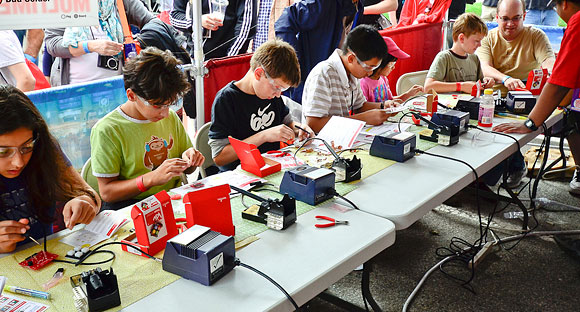
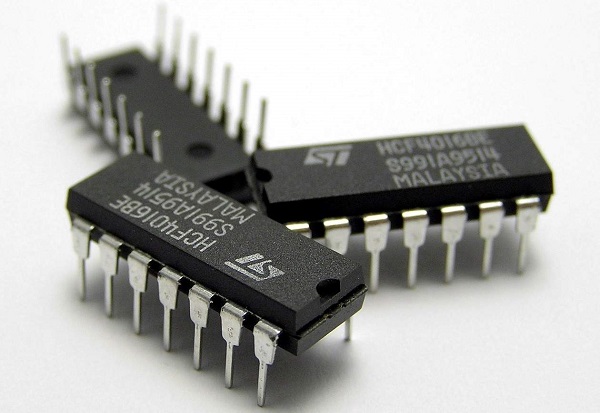
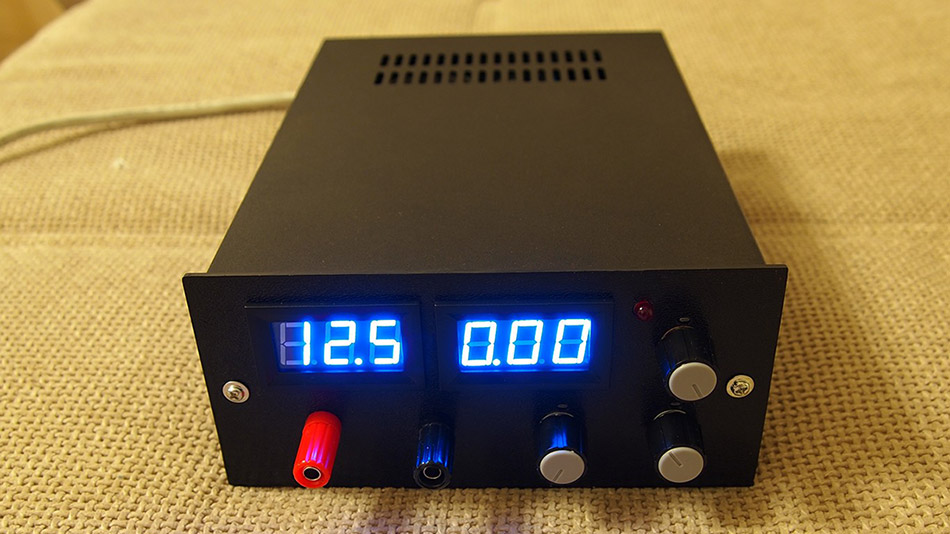
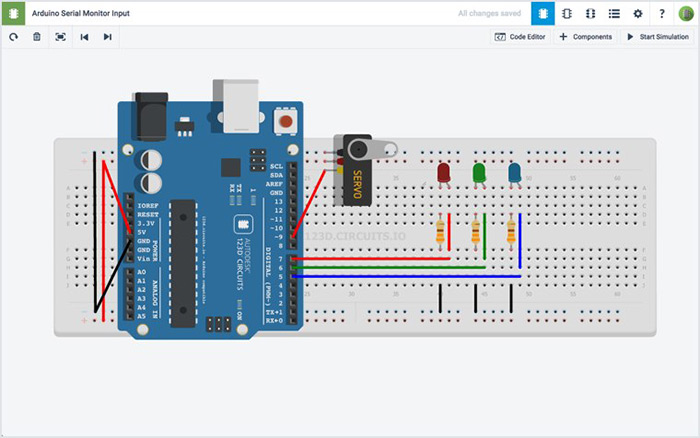
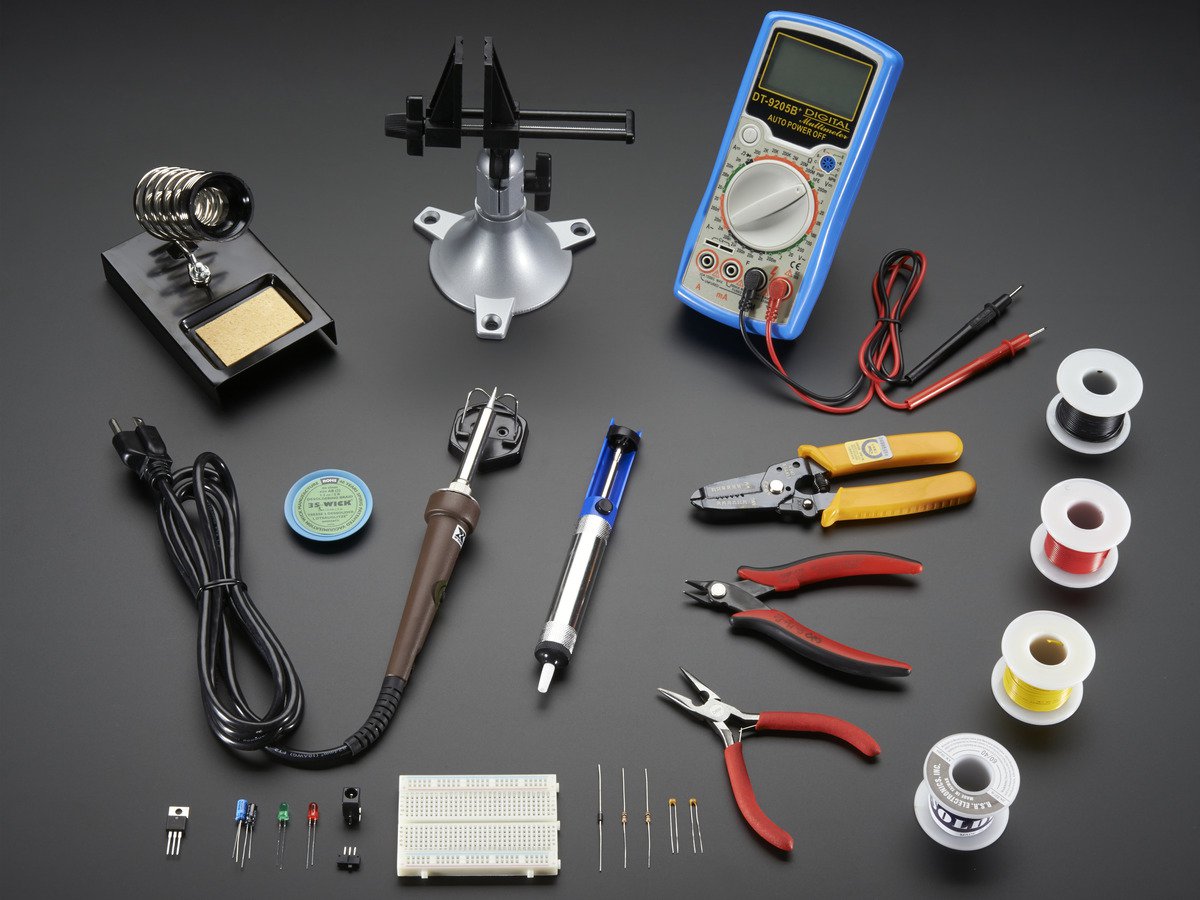
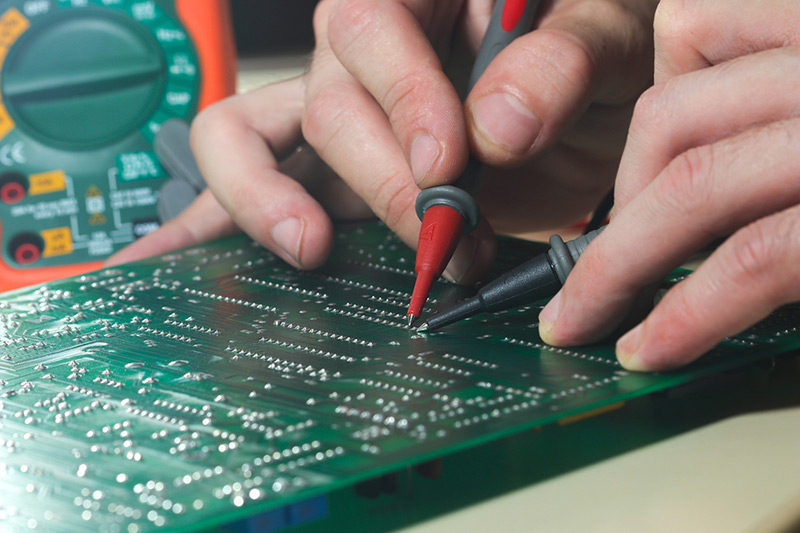


I would also suggest some sort of anti-stat mat, and a dedicated 1 MΩ line to ground. You don’t need it always, but it can be critical when working with sensitive components. I have had one for years, keep it clean, and it serves me well.
Another item that can literally be a lifesaver is some sort of isolation transformer. They were essential when working with CRTs, but still have a place. And for troubleshooting, a variac is pretty handy, but old gear can be finicky (Sony audio gear with J-FETs are destroyed if you bring them up on a variac) so ALWAYS read the documentation for best practices for your situation.
By hitting auctions, especially state auctions of trade schools and colleges, and going out of business sales for shops, you can find decent gear on the cheap.
as seen in the photos, a METAL table would not be a good idea! Also, an Optivisor or the like would be very handy! Additionally, going to hamfests can be an economical way to add items to bench, assuming there are hamfests in your area…
Sorry, its not the way it looks actually it was wooden one. Many thanks for your suggestion will update this article soon
Can I assume that $50 for an 0’scope is a typo?
The cost of oscilloscope depends on how much effective and advanced your O’scope is, you may find those ($50) in auction sites
They missed one more 0… 😀
Couldn’t get you.